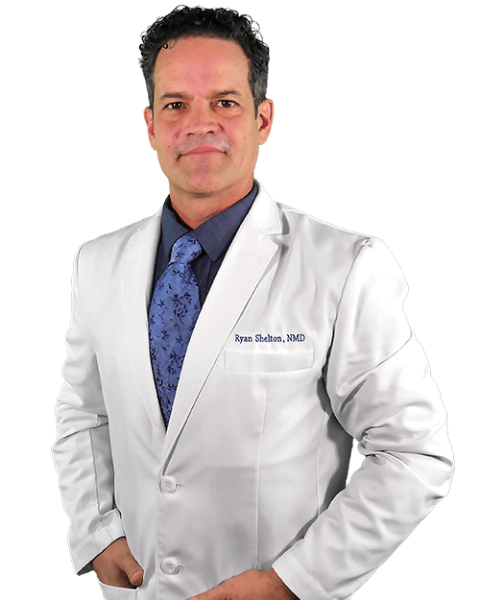It’s exciting to talk about environmental health and wellness because there are some simple steps you can take to limit or avoid your exposure to certain toxic elements. I’ll teach you to identify the sources you are exposed to and show you how to limit them or avoid them to the best of your ability.
BPA Free Phthalate free PFOA free Doctor’s Advice
There are three different environmental toxins negatively affecting your health: BPAs, phthalates, and PFOAs. Let’s talk about each of them so you can avoid them in order to promote optimal health and wellness.
1. BPA
BPA stands for bisphenol A and is a structural component of plastic found in many household products, including food storage items, water bottles, plastic dishes and cutlery, and food packaging. BPA can be found in many items with the recycling codes number seven or number three.
The problem with BPA in packaging is that the chemical can leach from packaging into the food or liquid contained within. High heat or extreme cold can accelerate this process, which means using microwaves, dishwashers, or freezers can cause BPA to leach even faster. Since so many products are packaged in BPA-containing plastics, exposure to this chemical is widespread to a majority of the population.
Why is BPA such a health concern? BPA is an endocrine disruptor, so it interferes with hormone levels and communication in the body. In particular, BPA impacts estrogen receptors in the body and is linked to increased inflammation, ovarian and breast disease, female and male infertility, early puberty, breast cancer, childhood neurological problems, and more.
The good news is that even though BPA seems to be everywhere, you can reduce your exposure to it with some easy changes. One study showed that people who stopped eating foods packaged in plastic for just three days showed a 60% drop of BPA levels in their bodies.
Look for packaging made of glass, steel, or porcelain rather than plastic. When plastic cannot be avoided, choose packaging with recycling codes one, two, four, or five as they contain less toxic types of plastic. Start using the bulk bins at your grocery store to reduce the amount of food packaging you come in contact with. At restaurants, grocery stores, and retail stores, opt for emailed receipts whenever you can as printed receipts contain a considerable amount of BPA.
Be wary of plastics that are labeled BPA-free, since they often contain other bisphenols like BPS. The full health impact of other bisphenols is not yet widely understood by scientists, but they are known to leach endocrine-disrupting chemicals as well. It’s best to avoid them entirely if you can.
When it comes to your family, look for the MADE SAFE label on baby products and water bottles. Baby bottles, teething rings, pacifiers, and toys are often made with plastics that contain BPAs. In addition to being BPA-free, MADE SAFE certified products are made without other toxic chemicals linked to health and ecosystem issues.
2. Phthalates
Phthalates are a class of common chemicals used to make plastics more flexible in consumer products like toys, vinyl flooring, call coverings, vinyl mattress covers, shower curtains, and plastic food packaging. Phthalates are also used as solvents or dissolving agents in things like detergents and lubricating oils.
You’ll even find phthalates in personal care and household items, usually listed as fragrance ingredients in nail polish, hairspray, aftershave lotion, soaps, shampoos, and perfumes. Because these chemicals are not tightly bound to other molecules in the products, they often leach from the plastic and into your body.
Phthalates have been linked to a range of health concerns including developmental and reproductive endocrine disruption. According to one study, phthalate exposure in males has been linked to lower sperm counts and altered sperm quality. In females, phthalates can alter thyroid function.
A recent report from the Centers of Disease Control found that phthalate exposure is widespread in the U.S. among both women and men, but higher in women because they use higher amounts of soaps, body washes, shampoos, cosmetics, and other personal care products than men do.
The European Union has banned all phthalates from cosmetics and the U.S. banned some phthalates from children’s toys. Unfortunately, these chemicals are still widespread, and studies have shown that phthalates are present in the urine of 99% of individuals tested.
Phthalates can be difficult to avoid as most labels simply list them as fragrance or perfume. However, you can reduce your use of fragrance products overall. Opt for products that disclose all ingredients on the label and source scents only from natural ingredients. Read labels on nail polishes and avoid any that list DBP as an ingredient. Reduce your use of plastic wrap and other products made from PVC.
Try to eat less packaged food, since exposure occurs from drinking and eating foods that are contained in plastics. Remember that heat or cold can accelerate the leaching process. Write to your favourite food companies and tell them you want phthalate-free packaging.
3. PFOAs
PFOAs stands for perfluorooctanoic acid, which is also called C8 and has related compounds called PFASs. There are currently more than 3000 PFOA and PFAS chemicals in consumer goods in the U.S. While PFOA has largely been phased out, it’s been replaced by PFASs with similar properties.
You can find them in Gortex, Teflon, and in carpet or furniture that has been made flame resistant. PFOAs are very persistent, which means they stay in the environment. They’re also bio-accumulative, so they stay in the human body for a long time.
PFOAs are ubiquitous as well, as a 2007 study from the CDC found PFOAs in the blood of 99.7% of Americans. After a class-action lawsuit that revealed PFOA’s links to cancer and other diseases, the manufacturer DuPont actually began to remove PFOAs from their products.
Unfortunately, it’s difficult to avoid PFOAs completely but you can switch from nonstick cookware to cast iron or stainless steel. Try to avoid stain-resistant materials like clothing, carpet, and furniture. Similar to BPAs, look for the MADE SAFE seal since PFOAs are not permitted in certified products.
Remember, the first two steps for better environmental health are identifying and avoiding products with these toxins in them. Then, you can follow those steps with a healthy supplement. Zenith Labs has created a supplement called Zenith Detox, which helps your liver process toxic elements from the environment around you.
 If you liked this video/article, do share it with your friends and loved ones. Subscribe to the Youtube channel for weekly tips on new tools and techniques to improve your health and well-being.
If you liked this video/article, do share it with your friends and loved ones. Subscribe to the Youtube channel for weekly tips on new tools and techniques to improve your health and well-being.
I believe in the original meaning of the word doctor, ‘docere’, which means teacher. I’m here to help educate you on how to take care of yourself in ways that you may not have heard of before, but that are effective. I always want to hear your ideas and feedback so be sure to leave me comments below!










